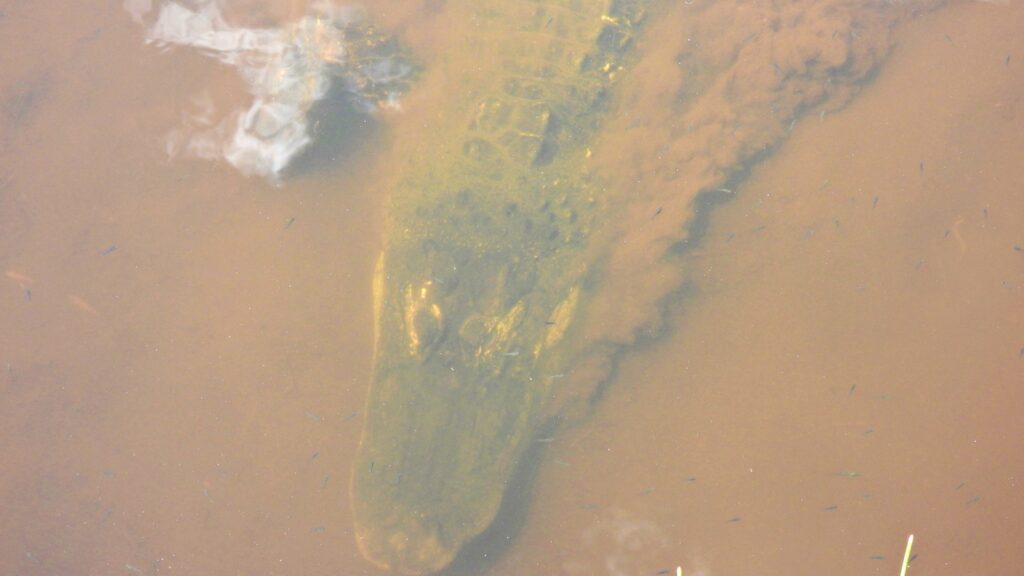iStockphoto / passion4nature
A blast of Arctic air has brought freezing temperatures to much of the United States including huge swaths of the Southeast where American alligators are found.
Alligators are cold blooded (ectothermic) animals meaning they use their environments to regulate their body temperature, typically by basking in the sun when it’s cool out or seeking cooler water when it’s scorching hot. But what about when the ponds freeze?
How Alligators Survive In Frozen Ponds
Thanks to a new viral video, a lot of people are just now learning how alligators survive in frozen ponds. Alligators can survive in frigid temperatures for extended periods of time due to brumation, a form of hibernation, where their metabolism slows down and they can go months without food. But if they are trapped under a frozen pond they still need to breath, right? Check it out:
In that video, the alligator can be seen trapped under the ice sheet with just its nose exposed above the frozen layer. This allows the alligator to breathe while the pond remains frozen for however long the cold spell lasts.
When resting, alligators can stay submerged for up to two hours without coming up for a breath. If they are active, they typically come up for a breath every 10 to 20 minutes.
The two videos above were filmed at the Gator Country Adventure Park outside of Beaumont, Texas. It recently got so cold there some of the ponds at the alligator zoo froze over and they were able to witness this alligator phenomenon in action.
A similar cold spell six years ago in North Carolina led to another viral video. At the Shallotte River Swamp Park in North Carolina, worker used hammers to chip away at the ice entrapping alligators while the gators were still able to breathe:
It isn’t often The South freezes hard enough for this become a viral story but the cycle of people learning how alligators survive in frozen ponds seems to crop up every five years. So mark your calendar for 5 years from now to share this information in 2029 when another Great Freeze grips The South and the alligators frozen in place.

